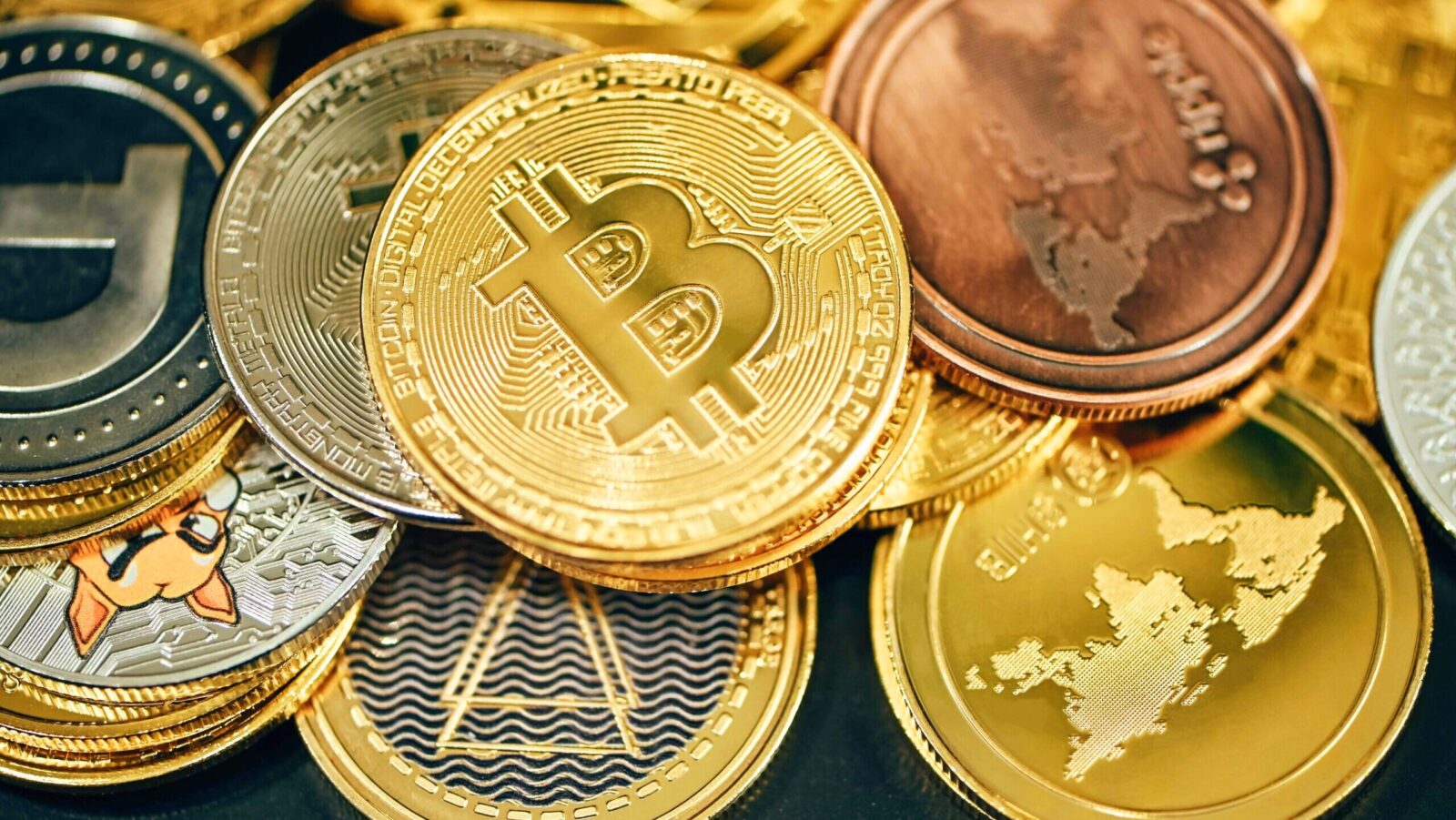Good morning, and happy Wednesday.
There’s a new ETF on the scene that purports to act like Ackman.
It’s the latest installment in a recent trend of exchange-traded funds attempting to mimic the trading strategies of famed investors, in this case, Bill Ackman. One such ETF launched last year, claiming to use AI to follow the acumen of Warren Buffett, Paul Singer, Stanley Druckenmiller and others. Another that debuted in March uses public disclosures of Berkshire Hathaway to try to invest somewhat like Buffett, along with holding BRK.B stock. That ETF, the VistaShares Target 15 Berkshire Select Income ETF, now represents $485 million and aims to pay out income of 15% annually using options. The firm’s new Target 15 ACKtivist Distribution ETF applies the same treatment to Pershing Square Capital. No word on whether there is a competing Carl Icahn-themed ETF in the works that would counter Ackman bets à la Herbalife. If there is, we’ll have the popcorn ready.
Nasdaq Seeks SEC Approval for Tokenized Trading

In case you thought that blockchain was just for crypto, Nasdaq may want to have a word.
It petitioned the Securities and Exchange Commission Monday for permission to tokenize US securities, including stocks and exchange-traded products. The setup it’s proposing would allow investors to choose how their trades are executed: the traditional way or via a distributed ledger. If they choose the latter, the Depository Trust Corporation would handle the backend work to clear and settle, recording assets on the blockchain.
“We’re already living in a digital world,” Chuck Mack, senior vice president of North American Markets for Nasdaq, said in an announcement. “Stocks and other securities today are represented and recorded through digital means, so tokenization is just a different method of digitally representing an asset.”
Different, But the Same
Whether in traditional or tokenized form, shares would trade with the same order entry, follow the same executive rules and use the same market identification numbers, according to Nasdaq. Tokenized assets would also provide the same shareholder rights as traditional shares, the company said. But the blockchain has efficiencies such as faster settlements and better audit trails, Mack said.
Trading US equities in tokenized form is new and is already happening on some platforms, albeit for non-US investors:
- Robinhood added tokenized access in July to 200 US ETFs and stocks for European clients.
- Kraken began a “phased rollout” of tokenized trading for US stock and ETFs in late June, starting with 60 securities available for eligible non-US clients.
Timing Is Everything: “Frankly, this seems designed to enlist the new SEC Atkins’ team and its crypto-friendly agenda,” said Bill Singer, a veteran Wall Street regulatory lawyer. Pending SEC approval, tokenized trading could begin on the Nasdaq as soon as the third quarter of 2026 — but there will be some obstacles, Singer said. There will almost certainly be debate on several aspects of the proposal, including getting infrastructure ready by that time, developing standards for metadata, piloting smaller asset classes, promoting transparency and liquidity and ensuring tokenized assets are legally recognized across different systems by the SEC, Commodity Futures Trading Commission and the Treasury Department’s Financial Crimes Enforcement Network, he said. Investor advocates may also counter that tokenization is just hype without any actual benefits, he said. “If the pushback and caution gain traction, a system-wide tokenization overhaul is unlikely to happen soon,” he said.
Higher Cash Returns, Lower Margin Rates: $40/Year

Webull Premium offers head-turning trading rates. Why? Because you made your money the hard way and you deserve a break.
Subscribers get:
- Exclusive benefits on IRAs, margin rates, and commission structures.
- Higher APY on uninvested cash, reduced margin interest rates.
- Volume-based discounts on index options and futures. Real-time Level 2 and OPRA market data included.
A subscription costs $3.99 a month or $40 a year. Webull earns revenue from membership fees rather than by leveraging your cash balances or trading activity — aligning its pricing model with your best interests.
Higher rates can mean real savings, especially for accounts with larger balances, active margin use, or frequent options trading. Webull’s calculator shows how much you can save based on your actual activity.
US Policy Whirlwind Threatens Clean Energy ETF Rebound
Clean energy funds that had begun to recharge after several years of setbacks are now grappling with fresh headwinds from recent actions by Congress and the White House.
ETFs and mutual funds focused on solar, wind power and other renewable energy sources have returned 18.5% year to date, on average, or about 8 percentage points above the S&P 500, data from Morningstar Direct show. That follows tough years for the category, due partly to the high cost of borrowing for clean-energy projects. In 2024, for example, such funds, on average, saw negative returns of over 13%. Average returns were -10% in 2023, -16% in 2022 and -3% in 2021. The much higher numbers so far this year follow implementation of the Biden-era Inflation Reduction Act, which provided tax incentives for alternative energy systems. And widely, the costs of materials have come down, said Hortense Bioy, head of sustainable investing research at Morningstar.
“The demand is there. As long as it costs less to produce energy from renewables, these companies will do well,” she said. “It depends on the cost of financing and the cost of materials. Because of innovation and competition, a lot of this is coming down.”
Hot Air
The outlook for the US market is cloudy, however, after Congress this year reversed some of the tax benefits for clean energy spending such as installing solar panels or buying electric cars. Government funding for large-scale projects has been frozen, in some cases for work that was nearing completion; President Donald Trump, a vocal critic of wind farms, has issued stop orders that are being challenged in court.
Investments in US renewable energy projects fell by 36% in the first half of 2025 from the second half of 2024, BloombergNEF reported late last month. Still, investments have continued to increase globally, hitting a record $386 billion in the first half of this year, with more than half of that coming from solar projects.
US ETFs have been affected differently, data from Morningstar Direct show:
- Fidelity’s $30 million Clean Energy ETF has had the strongest returns year to date, at over 31%, while the $4 million Horizon Kinetics Energy Remediation ETF returned 3%. (Separately, the Defiance Next Gen H2 ETF had negative returns of nearly 26%, but that fund liquidated in April.)
- Only two funds, the Invesco WilderHill Clean Energy ETF and First Trust Global Wind Energy ETF, brought in net inflows so far this year, at about $3 million and $4.5 million, respectively. As a category, clean energy ETFs bled a total of $753 million year to date.
Sunnier Forecast: The performance of subcategories in clean energy has varied recently, too. Some companies focused on solar power, for example, have not been as dependent on tax credits, which had been favoring residential solar installations. Further, the uncertainty around global tariffs is a factor, as China is a major producer of components, and it exports rare-earth elements needed for solar panels, Bioy noted. Even so, demand for clean energy has only increased in Europe, and there is a growing need for more power sources for data centers amid the AI boom, she said. “The long-term trend is that we need more renewable energy.”
21Shares Tosses ETFs While Prepping for Spot Crypto Frenzy

21Shares is overhauling its US ETF line, and it’s out with the old, in with the yet-to-be-approved-by-the-SEC.
The company is scrapping three of its five exchange-traded funds, according to a regulatory filing made on Monday. All three of those products are relatively small and come from the partnership 21Shares has had with ARK Invest. Meanwhile, 21Shares has been prepping more than half a dozen spot-price ETFs focused on other types of cryptocurrency.
“The writing was sort of on the wall for this relationship after ARK decided not to partner with 21Shares for their Ethereum ETF,” said Bryan Armour, director of ETF and passive strategies at Morningstar.
Something Old, Something New
21Shares did not comment on the direction the firm is taking. The three ETFs being liquidated are the $12 million ARK 21Shares Active Bitcoin Futures Strategy (ARKA), $13 million Active Ethereum Futures Strategy (ARKZ) and $11 million Blockchain and Digital Economy Innovation ETF (ARKD). Its remaining ETFs will be the $4.8 billion ARK 21Shares Bitcoin ETF (ARKB) and $35 million 21Shares Ethereum ETF (TETH). While there was some demand industrywide for crypto futures ETFs prior to the approvals for spot Bitcoin and spot Ethereum, that has since eroded. “They’re just a suboptimal product now,” Armour said. “There are just better ways to access [crypto].”
However, the company has sought approval from the Securities and Exchange Commission for a range of crypto ETFs, including:
- Two ETFs tracking crypto indexes, including the FTSE Crypto 10 Index and FTSE Crypto 10 ex-BTC Index.
- At least two leveraged funds — the 21Shares 2x Long Dogecoin and 2x Long Sui ETFs.
- Spot-price ETFs for Sei, Sui, XRP, Solana, Ondo, Polkadot and Dogecoin.
Let’s See What Ya Got: The SEC under Chairman Paul Atkins has started moving more quickly toward approving crypto ETFs. Last week, the regulator issued a rare statement with the CFTC that encouraged ETF issuers to file for spot crypto funds. 21Shares hasn’t been reluctant to do that, taking a path to build out products that aren’t cobranded with ARK. “It seems like they’re focused on building their own brand in cryptocurrencies,” Armour said.
Extra Upside
- Meme First: Dogecoin prices rise amid ETF approval speculation.
- A Real Preach: An investment manager and S&P built an index for evangelical Christians.
- Giant Steps: Here’s a look at how the biggest ETFs performed in August.
ETF Upside is written by Emile Hallez. You can find him on LinkedIn.
ETF Upside is a publication of The Daily Upside. For any questions or comments, feel free to contact us at etf@thedailyupside.com.
Disclaimer
*Webull Financial LLC, Member SIPC, FINRA. Investing involves risk. Subscription required. Fees may apply. More info at webull.com/disclosures
APY (Annual Percentage Yield) reflects the total amount of interest earned over a year. Rates are variable and may change at any time without notice.

